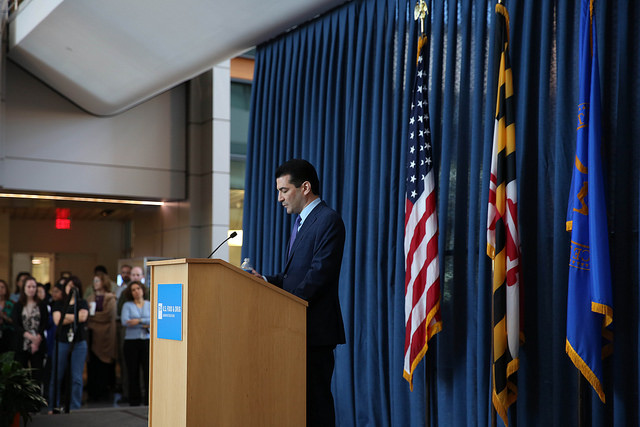FDA's Gottlieb vows to close orphan drug loopholes

FDA commissioner Scott Gottlieb is continuing his plans to streamline and accelerate the regulators' practices, but now plans to close down at least one glaring loophole in the Orphan Drug Act.
Appointed in May to lead the FDA, Gottlieb has wasted no time in tackling the agency's backlog of generic drug filings, and a similar one for orphan drugs.
This has been warmly welcomed by pharma, but Gottlieb's promises to close loopholes in the Orphan Drug Act won't be so popular with the industry.
Writing in a FDA post, Gottlieb said the orphan drug legislation has been a great success, but said he would now be taking steps to end 'gaming' of the system.
He named one loophole in particular which was allowing companies to 'sidestep' their responsibility to current paediatric trials.
By allowing paediatric subpopulations of common diseases to be designated as orphan conditions, the US sought to promote paediatric drug development.
However, in some cases this can perversely have the opposite effect.
Gottlieb uses inflammatory bowel disease as an example, and says a drug already approved to treat the large population of adults with the condition can gain an Orphan Drug Designation (ODD) in a small subset of children suffering from the same condition.
However once a drug receives an orphan designation for a paediatric population of the adult disease, the drug then becomes statutorily exempt from the requirements of the Pediatric Research Equity Act (PREA), one of the key regulations governing the area.
Gottlieb notes in his blog:
"This occurs even in cases where the sponsor never goes on to develop the drug for this paediatric use. These PREA requirements could have required the sponsor to study the drug for this or other uses in children. By granting the drug a paediatric orphan designation, it means the drug never has to actually be studied for a paediatric use.
"It's a loophole that is in direct opposition to what Congress intended."
He says the FDA will soon issue a draft guidance document to work toward closing the loophole.
The orphan drug bonanza?
However there are plenty of critics who say there are many more loopholes and unintended consequences being exploited by pharma which need to be closed.
The Orphan Drug Act, first passed in 1983, has been very successful in encouraging research into rare disease that would be unprofitable because of a limited market. Notable successes in this field include Vertex's cystic fibrosis drugs and Genzyme's Myozyme.
The act provides major incentives, giving companies tax subsidies of up to half a million dollars a year for up to four years per drug, large tax credits and waivers of marketing application fees of more than $2 million. The FDA can also grant companies seven years of marketing exclusivity, a set of incentives which has seen the number of orphan drug designations skyrocket in recent years.
Critics say the industry has exploited ODDs to gain market exclusivity and drive up prices.
Martin Makary, professor of surgery at Johns Hopkins and a prominent health-care quality and safety expert set out his argument in 2015 in the American Journal of Clinical Oncology.
He noted: "The industry has been gaming the system by slicing and dicing indications so that drugs qualify for lucrative orphan status benefits. As a result, funding support intended for rare disease medicine is diverted to fund the development of blockbuster drugs.
"Companies can exploit the law by initially listing only a single indication for a drugs use one narrow enough to qualify for orphan disease benefits. However after FDA approval, some products are marketed and used off label far more broadly, thus turning large profits."
There is no doubt that orphan drugs are now integral to many pharma companies' strategy: the number of orphan drug submissions to the FDA increased to 568 new requests in 2016, more than double the number in 2012.
Makary's study found the median cost for orphan drugs was more than $98,000 per patient per year, compared with a median cost of just over $5,000 per patient per year for non-orphan status drugs.
He used Novartis' Gleevec (imatinib) to illustrate the trend. The leukemia treatment was originally priced at $30,000 per year in 2001, but this had risen to $92,000 a year by 2012. The drug's original designation was for CML only and would treat 9,000 patients a year in the US. However it gained six further orphan designations, including gastric cancers and immune disorders.
In his blog Gottlieb doesn't declare action on any other loopholes or mention prices, which are traditionally outside the remit of the FDA. Instead he stressed the FDA wanted to "maximise new opportunities for patients," suggesting he may not weight into this fight.
However the accompanying tweet took a stern tone on industry practices.
#FDA taking new steps to end gaming of orphan drug designation process that can reduce patient access, competition: https://t.co/giDh3mXTjR
— Scott Gottlieb, M.D. (@SGottliebFDA) September 12, 2017
The US industry will keep a close eye on what happens next, but the growing number and cost of orphan drugs means that the controversy is only likely to intensify over the coming years.
Read Scott Gottlieb's blog in full here.












